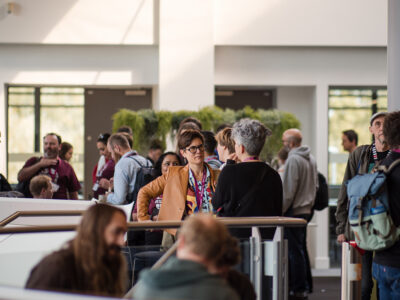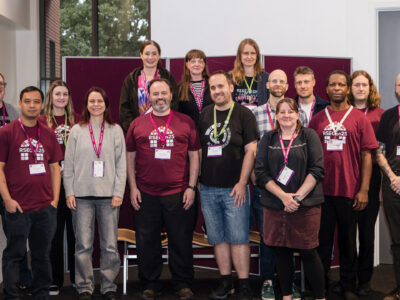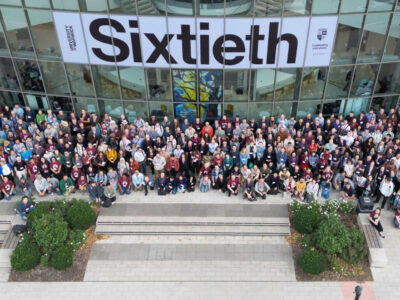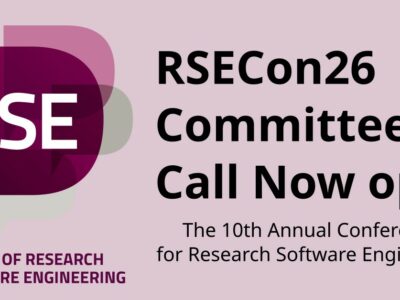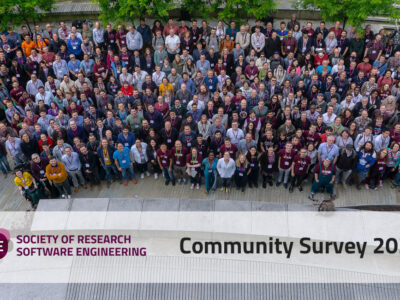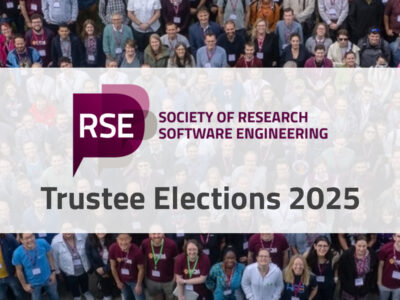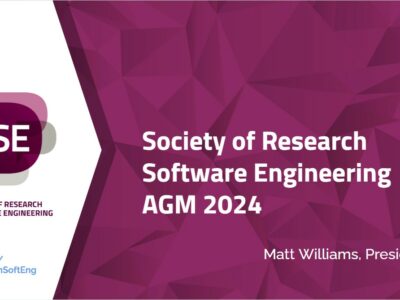Digital Humanities & Research Software Engineering Summer School
by Jonathan Blaney
On possibly the hottest week of the summer, the Digital Humanities & Research Software Engineering Summer School took place between 30 June and 3 July, at King’s College London.
This annual event aims to give people interested in technology and the Humanities a sense of what kind of work RSEs in this area do, and an idea of the variety of careers that are available, as well as the different backgrounds from which people come to RSE work.
The four-day programme consisted of talks and practical activities focused on the software life cycle, the command line, high-performance computing and environmental sustainability.
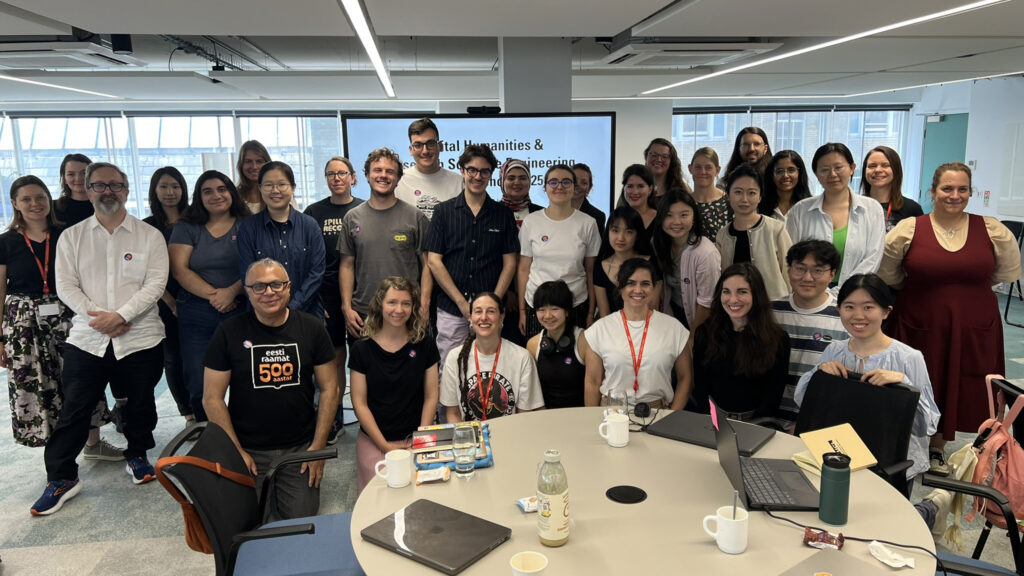
Twenty-eight participants from all over the globe came to London, bringing a wide variety of experience and interests, making for a lively event. Happily, we were able to provide bursaries for some applicants who would not otherwise have been able to attend, thanks to generous funding from the Society of Research Software Engineering and STEP-UP, a project supporting the development of skills and career opportunities for digital Research Technical Professionals.
For part of the week, we were joined by five DISKAH Fellows, a UKRI-funded network to develop skills in large-scale computational approaches to the Arts and Humanities.
The programme was organised and delivered by King’s Digital Lab, Cambridge Digital Humanities and The Centre for Data, Culture & Society, University of Edinburgh. We also had invaluable input from King’s College London e-Research and from DISKAH.
As in previous years, we found that an enormous benefit to participants was the opportunity to meet and network with people from different institutions and research areas who are also working on digital approaches to the Arts and Humanities.
The organisers would like to thank the Society of RSE for its continued support in making this event accessible to attendees who otherwise could not have had the benefit of this stimulating week in London.
This event was supported by the Society’s Events and Initiatives Fund.


